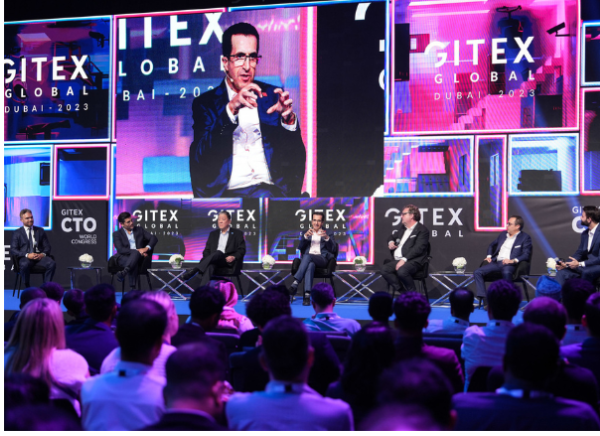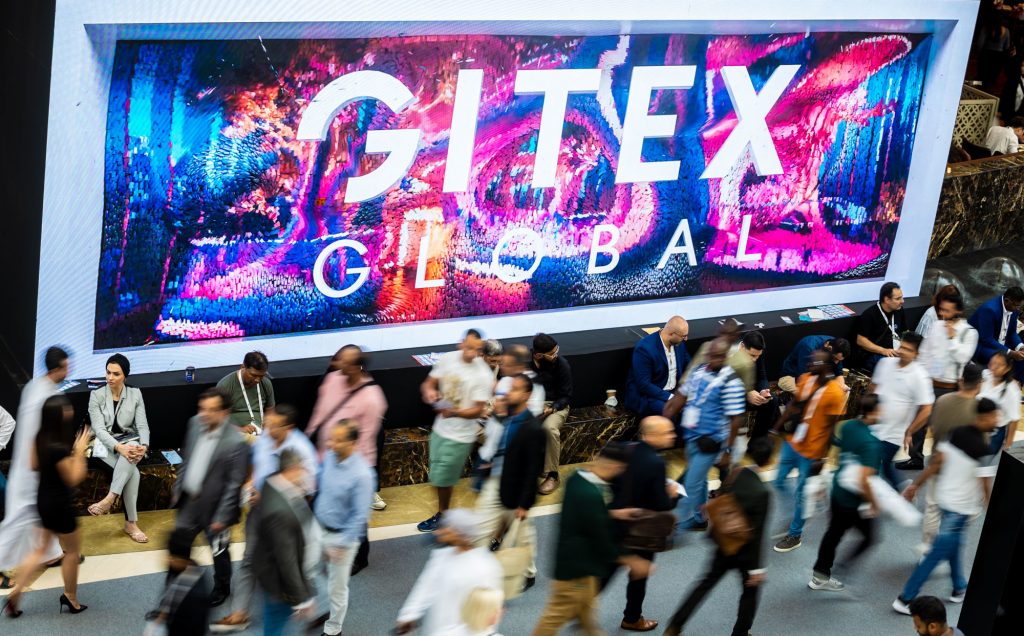22 December 2024, Sun |
10:28 AM

As GITEX GLOBAL 2023 came to a successful conclusion on its fifth day, industry experts converged to redefine the strategies organizations must adopt to thrive in an era marked by swift digital transformation. This 43rd edition of GITEX GLOBAL, held from October 16-20, 2023, once again attracted a full house at the Dubai World Trade Centre, hosting over 6,000 exhibitors. With a 40% year-on-year growth, the event spanned 2.7 million square feet of exhibition space across 41 halls, accommodating 1,800 startups between GITEX GLOBAL and Expand North Star, which took place at Dubai Harbour from October 15-20. Together, these events united the brightest minds and visionary companies to scrutinize, challenge, shape, and empower the digital future.

“The Vital Role of Data Centers in the Digital Age”
During GITEX GLOBAL 2023, Khazna Data Centres released a report that delved into the surging demand for data centers due to their critical role in achieving business success amid the growing emphasis on digitalization. The report revealed that 89% of business leaders believe digitalization is pivotal to their success, prompting a reassessment of data center needs. As a result, 45% of large and extra-large organizations expressed interest in expanding their IT infrastructure for enhanced flexibility, while approximately 36% aimed for increased digital innovation, and another 36% sought to enhance their customer experience. Hassan Alnaqbi, CEO of Khazna Data Centers, emphasized that digital strategies have taken center stage in the ongoing digital revolution, making data centers an indispensable cornerstone.
“Revolutionizing Data-Driven Decision-Making with Acentrik”
Modern enterprises and government institutions face data-related challenges such as data silos, privacy concerns, and cross-border data exchanges as they rely on data for decision-making. To address these issues, Mercedes-Benz introduced Acentrik, a data exchange platform that facilitates the creation of secure and compliant data ecosystems. At GITEX GLOBAL, Mercedes-Benz announced the availability of Acentrik in the UAE following its success in the EU and APAC markets. Acentrik offers various collaboration, data transfer, and monetization opportunities, with its standout feature being a compute-to-data approach incorporating edge computing capabilities. This approach allows secure and private data computation without relocating raw data, effectively bringing algorithms to the data instead of the other way around. Jochen Kaiser, Head of Data Ecosystems at Mercedes-Benz Group AG, emphasized the significance of data access for organizations’ data-driven decisions and strategies.
“Envisioning the City of the Future”
GITEX GLOBAL hosted a stimulating discussion about the digital city of the future, where experts envisioned the world and cities in 2050 as interconnected matrices of information, data, and technology that will continue to reshape how we live, work, and play. While the opportunities are abundant, they also highlighted the challenges involved in building smart cities. Technical obstacles can be overcome with the right technology, but achieving public buy-in necessitates education and a significant shift in attitudes toward emerging technology. Given the rapid pace of technological advancements, staying informed about current technology and its future direction is essential for effectively meeting specific needs. Notable experts on the panel included representatives from Singapore, Orange, Magic Leap, Nokia, the City of Prague, and TONOMUS Compute.
“Rising Cybercrime Threats and the Global Response”
Global cybercrime damage is projected to reach $10.5 trillion annually by 2025, fueled by increasingly sophisticated and large-scale cyberattacks, the growing reliance on digital technology, and a lack of cybersecurity awareness and education. Leading public and private Chief Information Security Officers (CISOs) discussed the global nature of cybercrime and the critical need for transnational efforts. They advocated for collaboration on bilateral agreements to share threat intelligence and recommended the establishment of continent-wide and global security operation centers (SOCs) as a means to enhance global cybersecurity. Cyberspace is borderless, and so is the threat of cybercrime, making international cooperation essential to safeguarding individuals, businesses, and governments.